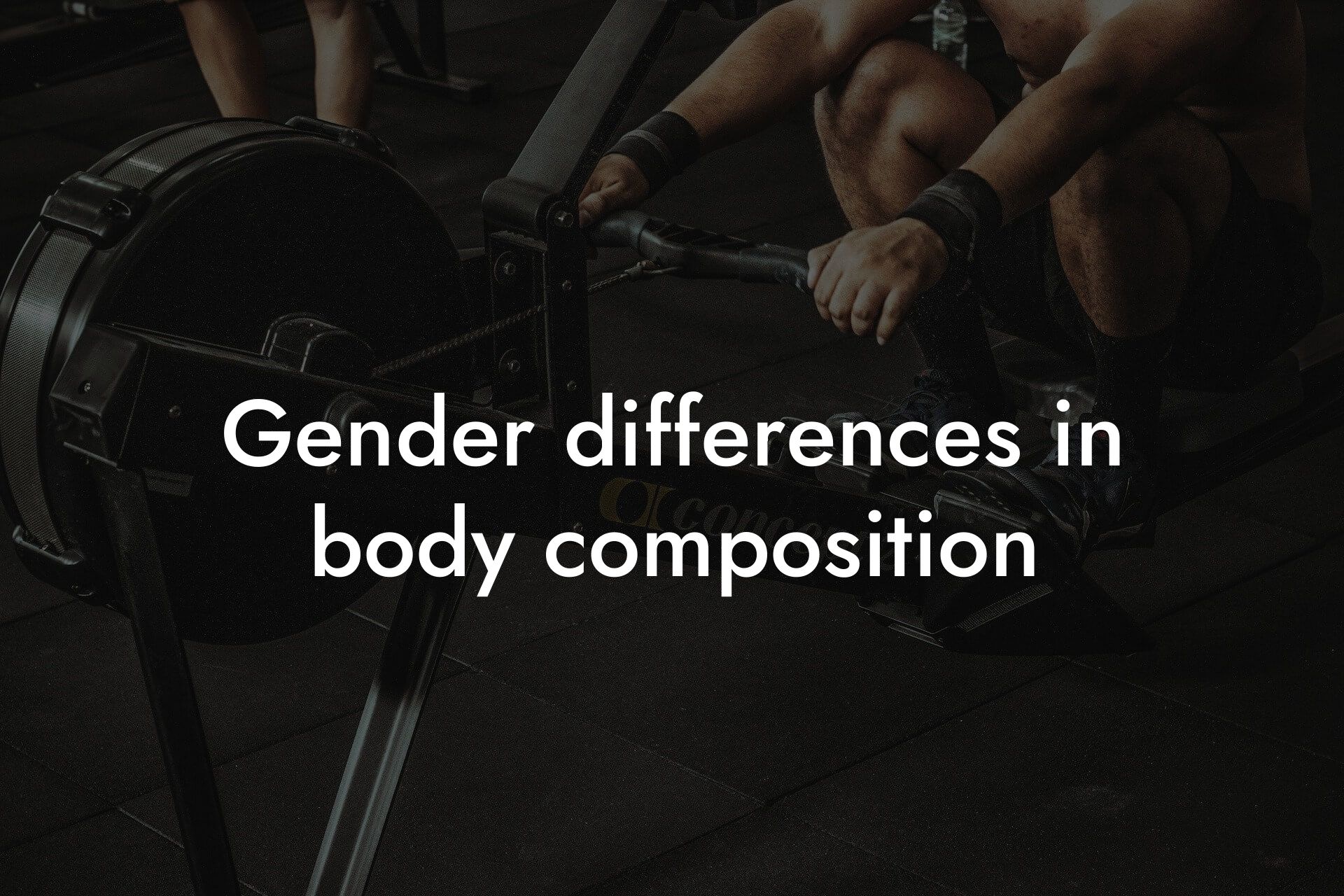As a high-earning professional, taking care of your physical appearance and overall health is crucial for maintaining peak performance in both your personal and professional life. One crucial aspect of your health is bone marrow density, which can be measured through a DEXA (Dual-Energy X-ray Absorptiometry) scan. In this article, we will delve into the world of bone marrow density, its importance, and how DEXA scans can help you understand and improve your bone health.
Table of Contents
What is Bone Marrow Density?
Bone marrow density, also known as bone mineral density (BMD), refers to the amount of minerals, such as calcium and phosphorus, present in your bones. It is a measure of the strength and density of your bones, which is essential for maintaining good bone health. Bone marrow density is typically measured in grams per cubic centimeter (g/cm³) and is compared to the average bone density of a healthy young adult.
Why is Bone Marrow Density Important?
Maintaining good bone marrow density is crucial for several reasons. Firstly, it reduces the risk of osteoporosis, a condition characterized by brittle and porous bones, which can lead to fractures and other serious health complications. Secondly, good bone marrow density can improve athletic performance, as strong bones provide a solid foundation for muscles to work efficiently. Finally, good bone marrow density can also boost confidence and overall well-being, allowing you to feel more energetic and capable of taking on daily challenges.
How Does a DEXA Scan Measure Bone Marrow Density?
A DEXA scan is a non-invasive, pain-free test that uses X-rays to measure bone marrow density. During the scan, you will lie on a table, and a machine will pass over your body, emitting X-rays that are absorbed by your bones. The amount of X-rays absorbed is directly proportional to your bone density. The scan typically takes around 10-15 minutes and is completely safe, with minimal radiation exposure.
What Do DEXA Scan Results Mean?
DEXA scan results are typically presented as a T-score and a Z-score. The T-score compares your bone density to that of a healthy young adult, while the Z-score compares your bone density to that of others of the same age, sex, and ethnicity. A T-score of -1 to -2.5 indicates osteopenia, a condition characterized by low bone density, while a T-score of -2.5 or lower indicates osteoporosis. A Z-score of 0 indicates that your bone density is average for your age group, while a Z-score above or below 0 indicates that your bone density is higher or lower than average, respectively.
Factors Affecting Bone Marrow Density
Several factors can affect bone marrow density, including:
- Age: Bone density naturally decreases with age, especially after menopause in women and andropause in men.
- Sex: Women tend to have lower bone density than men, especially after menopause.
- Genetics: Family history can play a role in bone density, with some individuals being more prone to osteoporosis.
- Nutrition: A diet lacking in calcium and vitamin D can contribute to low bone density.
- Lifestyle: Sedentary lifestyle, smoking, and excessive alcohol consumption can all negatively impact bone density.
Improving Bone Marrow Density
Fortunately, there are several ways to improve bone marrow density, including:
- Regular exercise: Weight-bearing exercises, such as running, jumping, and weightlifting, can help strengthen bones.
- Calcium and vitamin D supplementation: Ensuring adequate intake of these essential nutrients can help promote bone health.
- Healthy diet: Eating a balanced diet rich in fruits, vegetables, and whole grains can provide essential nutrients for bone health.
- Reducing risk factors: Quitting smoking, limiting alcohol consumption, and getting enough sleep can all help improve bone density.
In conclusion, understanding bone marrow density is crucial for maintaining good bone health and overall well-being. DEXA scans provide a safe and effective way to measure bone density, allowing you to take proactive steps to improve your bone health. By understanding the factors that affect bone density and taking steps to improve it, you can reduce the risk of osteoporosis, improve athletic performance, and boost your confidence and overall quality of life.
At Tano Performance Group, we are committed to providing you with the tools and information you need to take control of your physical health and performance. Our state-of-the-art DEXA machine provides a comprehensive body assessment, giving you a detailed understanding of your bone density, body fat percentage, and other key health metrics. Contact us today to schedule your DEXA scan and take the first step towards optimal health and performance.
Frequently Asked Questions
What is bone marrow density?
Bone marrow density refers to the amount of bone tissue present in a given volume of bone. It is an important indicator of bone health and can be measured using a DEXA (Dual-Energy X-ray Absorptiometry) scan. A higher bone marrow density indicates stronger, healthier bones, while a lower density may indicate bone loss or osteoporosis.
What is a DEXA scan?
A DEXA scan is a non-invasive medical imaging test that measures bone density. It uses X-rays to measure the density of bones in the spine, hips, and sometimes the forearm. The test is quick, painless, and exposes patients to very low levels of radiation.
Why is bone marrow density important?
Bone marrow density is important because it can indicate an individual's risk of osteoporosis and fractures. As we age, our bones naturally lose density, which can increase the risk of osteoporosis and fractures. Measuring bone marrow density can help identify individuals who are at risk and allow for early intervention and treatment.
What is osteoporosis?
Osteoporosis is a condition characterized by brittle and porous bones. It occurs when the body loses too much bone tissue or makes too little bone tissue, leading to weak and fragile bones. Osteoporosis can increase the risk of fractures, particularly in the spine, hips, and wrists.
Who is at risk of osteoporosis?
Anyone can develop osteoporosis, but certain individuals are at higher risk. These include older adults, especially women after menopause, individuals with a family history of osteoporosis, those with a small bone frame, and those who have certain medical conditions or take certain medications.
How is bone marrow density measured?
Bone marrow density is measured using a DEXA scan. The scan uses X-rays to measure the density of bones in the spine, hips, and sometimes the forearm. The results are then compared to a standard reference range to determine the individual's bone marrow density.
What is a T-score?
A T-score is a measure of bone marrow density that compares an individual's bone density to that of a healthy young adult. A T-score of -1 or higher indicates normal bone density, while a T-score of -1 to -2.5 indicates low bone density, and a T-score of -2.5 or lower indicates osteoporosis.
What is a Z-score?
A Z-score is a measure of bone marrow density that compares an individual's bone density to that of others of the same age and sex. A Z-score of 0 indicates average bone density, while a Z-score above 0 indicates above-average bone density, and a Z-score below 0 indicates below-average bone density.
What is the difference between a T-score and a Z-score?
The main difference between a T-score and a Z-score is the reference range used. A T-score compares an individual's bone density to that of a healthy young adult, while a Z-score compares it to that of others of the same age and sex. T-scores are used to diagnose osteoporosis, while Z-scores are used to assess bone health in individuals under the age of 50.
What are the benefits of measuring bone marrow density?
Measuring bone marrow density can help identify individuals at risk of osteoporosis and fractures, allowing for early intervention and treatment. It can also monitor the effectiveness of treatment and track changes in bone density over time.
How often should I get a DEXA scan?
The frequency of DEXA scans depends on individual circumstances. Generally, individuals at high risk of osteoporosis, such as older adults or those with a family history of osteoporosis, may need to get a DEXA scan every 2-3 years. Those with normal bone density may only need to get a scan every 5-10 years.
Can I increase my bone marrow density?
Yes, there are several ways to increase bone marrow density. These include getting regular exercise, especially weight-bearing and resistance exercises, eating a diet rich in calcium and vitamin D, not smoking, and limiting alcohol consumption. Medications such as bisphosphonates and hormone replacement therapy may also be prescribed to increase bone density.
What is the relationship between bone marrow density and body composition?
Bone marrow density is closely related to body composition, as both are influenced by factors such as age, genetics, and lifestyle. Individuals with a higher percentage of body fat may have lower bone marrow density, while those with a higher percentage of lean muscle mass may have higher bone marrow density.
Can I improve my body composition to increase bone marrow density?
Yes, improving body composition can help increase bone marrow density. This can be achieved through a combination of diet and exercise, such as eating a balanced diet and engaging in regular weight-bearing and resistance exercises. Losing weight, if necessary, and building lean muscle mass can also help improve bone marrow density.
What is the role of calcium and vitamin D in bone health?
Calcium and vitamin D are essential nutrients for bone health. Calcium helps build and maintain bone tissue, while vitamin D helps the body absorb calcium. Adequate intake of calcium and vitamin D is crucial for maintaining healthy bones and preventing osteoporosis.
How can I ensure I'm getting enough calcium and vitamin D?
Ensuring adequate intake of calcium and vitamin D can be achieved through a combination of diet and supplements. Foods rich in calcium include dairy products, leafy greens, and fortified cereals, while vitamin D can be found in fatty fish, fortified dairy products, and sunlight exposure. Supplements can also be taken to ensure adequate intake.
What are the risks of low bone marrow density?
The risks of low bone marrow density include osteoporosis, fractures, and decreased mobility. Low bone marrow density can also increase the risk of spinal deformities, such as kyphosis, and can affect overall quality of life.
Can bone marrow density be improved with exercise?
Yes, exercise can help improve bone marrow density. Weight-bearing and resistance exercises, such as walking, running, and weightlifting, can help stimulate bone growth and increase bone density. Exercise can also improve muscle mass and strength, which can help support bone health.
What types of exercises are best for improving bone marrow density?
Exercises that are best for improving bone marrow density include weight-bearing exercises, such as walking, running, and jumping, and resistance exercises, such as weightlifting and bodyweight exercises. High-impact exercises, such as those that involve jumping or hopping, can be particularly effective in improving bone density.
Can bone marrow density be improved with nutrition?
Yes, nutrition can play a crucial role in improving bone marrow density. A diet rich in calcium, vitamin D, and other essential nutrients can help support bone health and increase bone density. Foods that are high in antioxidants, such as fruits and vegetables, can also help reduce inflammation and promote bone health.
What are the benefits of high bone marrow density?
The benefits of high bone marrow density include a reduced risk of osteoporosis and fractures, improved mobility and independence, and a better overall quality of life. High bone marrow density can also reduce the risk of spinal deformities and improve body composition.
How can I maintain healthy bones as I age?
Maintaining healthy bones as we age requires a combination of a healthy diet, regular exercise, and adequate sleep. It's also important to manage underlying medical conditions, avoid smoking and excessive alcohol consumption, and get regular DEXA scans to monitor bone density.
What are the implications of bone marrow density for athletes?
Bone marrow density is particularly important for athletes, as it can affect their risk of injury and performance. Athletes with low bone marrow density may be at increased risk of stress fractures and other injuries, while those with high bone marrow density may have a competitive advantage.
Can bone marrow density be improved in athletes?
Yes, bone marrow density can be improved in athletes through a combination of diet, exercise, and nutrition. Athletes can benefit from a diet rich in calcium and vitamin D, as well as regular weight-bearing and resistance exercises to improve bone density.
Here are some related articles you might love...
- The role of brown fat in body composition
- How body composition changes with endurance training
- Gender differences in body composition
- How DEXA scans detect visceral fat
- Advanced body composition metrics: Lean mass index
- The impact of muscle asymmetry on body performance
- How body composition affects metabolic rate
- Differences between subcutaneous and visceral fat
- How hydration levels affect body composition results
Zak Faulkner
Zak Faulkner is a leading authority in the realm of physical health and body composition analysis, with over 15 years of experience helping professionals optimise their fitness and well-being. As one the experts behind Tano Performance Group, Zak has dedicated his career to providing in-depth, science-backed insights that empower clients to elevate their physical performance and overall health.
With extensive knowledge of DEXA technology, Zak specializes in delivering comprehensive body assessments that offer precise data on body fat, muscle mass, bone density, and overall physique. His expertise enables individuals to make informed decisions and achieve their fitness goals with accuracy and confidence. Zak’s approach is rooted in a deep understanding of human physiology, combined with a passion for helping clients unlock their full potential through personalised strategies.
Over the years, Zak has earned a reputation for his commitment to excellence, precision, and client-focused service. His guidance is trusted by top professionals who demand the best when it comes to their health. Whether advising on fitness programs, nutritional strategies, or long-term wellness plans, Zak Faulkner’s insights are a valuable resource for anyone serious about taking their health and fitness to the next level.
At Tano Performance Group, Zak continues to lead our Content Team revolutionising how professionals approach their physical health, offering unparalleled expertise that drives real results.




